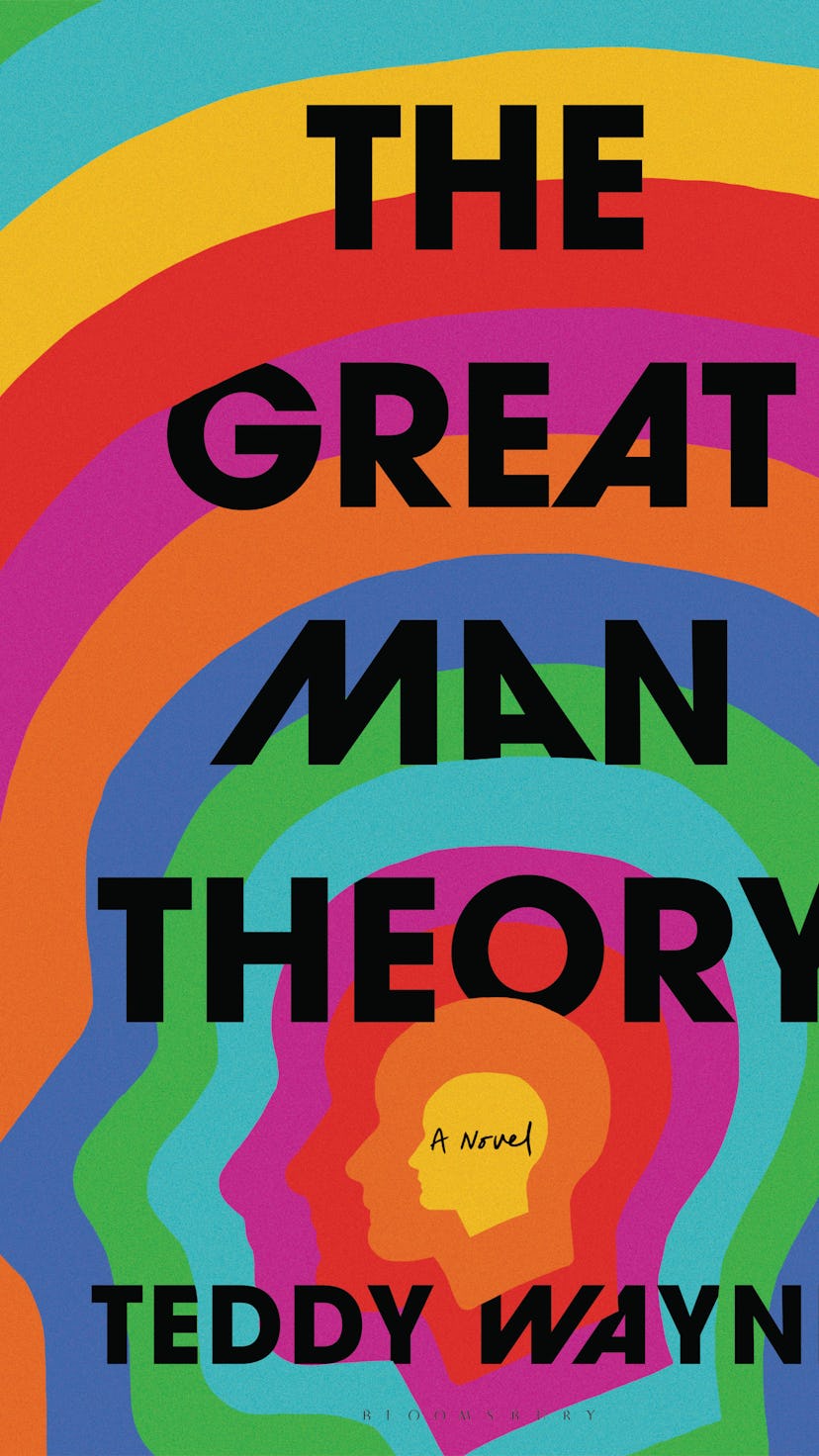The Best Summer 2022 Novel Is A Cautionary Tale For Cranky Dads
In Teddy Wayne's The Great Man Theory, a curmudgeon father reveals all our worst fears.

Cranky dads are funny. From National Lampoon’s Vacation to Father of the Bride, the idea of a lovable unhinged dad-protagonist is, more often than not, comedy gold. But what happens when that conceit is actually just the beginning of the story? In his new book, The Great Man Theory, novelist Teddy Wayne turns a seemingly harmless curmudgeon dad into an utterly tragic figure. The transformation makes for a page-turner that is one of the hottest books of the summer — and also a cautionary tale for get-off-my-lawn dads everywhere.
Prior to writing The Great Man Theory, Wayne might be best known for his 2013 novel The Love Song of Jonny Valentine, a laugh-out-loud book about a tween pop star in the vein of Justin Bieber. Since then, Wayne’s books have tackled all sorts of underexamined aspects of masculinity, from Loner (2016) to Apartment (2020.) In all of his books, Wayne — a father of two in real life — tries to, in his words, twist the narrative “by smuggling in an indictment of myself — or the exaggerated, distorted, worst qualities of myself.” In The Great Man Theory, this dark mirror is at first, a kind of Curb Your Enthusiasm trick. But, as the book goes on, the humor gives way to real stakes.
The Great Man Theory centers on Paul, a divorced dad, who, as is made clear in the book, “isn’t good at life.” He’s been demoted at his college teaching job, he’s unpopular at dinner parties, and even admits outwardly that he “doesn’t like to do things.” For everyone one of us who is burnt out on PTA meetings, small talk, virtue-signaling, TikTok, and everything else that feels annoying, Paul’s deadpan view of the world will feel comforting. In a sense, he’s a man with a fork, in a world of soup; nothing he does is quite right, and the deck seems stacked against him.
And yet, Paul is also a white male with problems that pale in comparison to real problems faced by various people around the world. While Wayne encourages us to laugh along with Paul’s mistakes and faux-pas, he also doesn’t let the character off the hook. “He hasn’t figured out how to master and exploit the rules of the game, as men, especially, are expected to do,” Wayne explains. “He is rapidly becoming irrelevant as a middle-aged male in the no-man’s-land, so to speak, between the retrograde values of those who came before him, and the progressive, sometimes befuddling ones of the next generations.”
One of the funniest ways Wayne highlights this predicament is Paul’s hatred of all new technologies. At his daughter’s birthday party, he makes all the kids watch a DVD of A Hard Day’s Night. He’s writing an anti-tech book called The Luddite’s Manifesto, and most importantly, he doesn’t have a smartphone and has never taken a photo of his daughter on a phone, in his entire life.
All of that flips, with Paul eventually becoming addicted to a smartphone, specifically by posting comments on a left-leaning news site. He gets trapped in a cycle of political outrage, unable to have a personality beyond his constant anger at “the president” (a sly cipher for the never-named Trump.) He cynically begins dating a right-wing talk show producer, with the hopes of infiltrating the ideological camp of his self-professed enemy. With all of these contradictions and fish-out-of-water scenarios, The Great Man Theory lends itself to incredible hijinks of cringe-worthy humor that drives so much of the book. “If he weren’t, on occasion, dryly funny, and if the writing around him didn’t try for some levity, people wouldn’t follow him for too long,” Wayne explains.
Teddy Wayne
Like a good Charlie Kauffman film, the humor, and hyperbole of The Great Man Theory, slowly but surely reveals the actual purpose of the book. Paul hasn’t done anything terrible, at first, but when his mistakes start to add up, the sum total of who he actually is doesn’t match with who he thinks he is. This, if nothing else, is the most important lesson for men who read the book: actions and words matter, even if the internal version of yourself still seems okay.
Without giving away some of the twists and turns, what makes The Great Man Theory such a page-turner, is the fact that you’re not really aware of how bad things are for Paul until the novel is almost over, which feels realistic. The ending is heart-pounding and fascinating and leaves you reflecting on just how far gone the character is, and how the steps to get to this point, are all fairly innocuous and small. To be clear, the book doesn’t end with some depressing murder-suicide or anything like that, but Wayne does raise the stakes into one specific moment that really packs a punch.
The Great Man Theory isn’t just a darkly comic indictment of toxic masculinity. Instead, it’s a cautionary tale for grumpy dads who think they’re always right. This book will be comforting to those dads, at first, but in the end, will probably make you think differently about how you feel about, well, everything.
The Great Man Theory is out now from Bloomsbury.